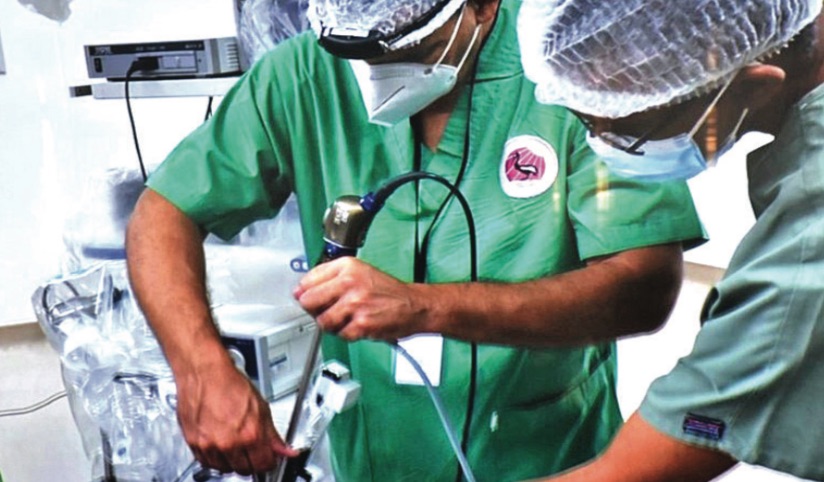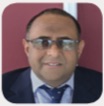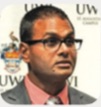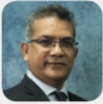Robotic-assisted surgeries change the way we see ourselves
In late September, six surgeons gathered at an operating theatre to remove three damaged gall bladders. They were all experienced hands at these laparoscopic cholecystectomies so, ordinarily, it would be a routine procedure. But on this Monday morning, something novel was happening, something that elicited the interest of medical students and other practitioners. These surgeries had an additional feature: the Freehand Panorama CoBot, a robotic camera-holder that would precisely capture images at the slightest swivel of the surgeon’s head.

“The robotic arm uses infra-red technology placed on the surgeon’s forehead to control the laparoscopic camera,” explained Dr Ravi Maharaj, head of the Department of Clinical Surgical Sciences. “The camera is hooked onto the robotic arm and the movement of the surgeon’s head controls the movement of the camera. These operations can therefore be performed with a surgeon and scrub nurse only and with the highest degree of precision of sight.”
It’s not that cameras had not guided laparoscopies before; but they were usually directed by an assistant’s hands, sometimes slow, sometimes shaky, and often prolonging the duration of the process.
After months of planning and pulling together the multitude of components to make it happen—no mean feat under pandemic restrictions—the laparoscopy experts were ready to see what kind of difference it would make. Working in teams (a lead surgeon and assistant doctors), Prof Shamir Cawich, Dexter Thomas, Patrick Harnarayan and Jason Rattan operated successfully on the first patient. By the time the second patient was wheeled in, Prof Dilip Dan, and his team of Michael Jimmy Ramdass, Ravi Maharaj and David Milne were gowned and masked and ready to go. For patient number three, the team was led by Yardesh Singh, with Adi Rambhajan and Jonathan Jarvis. The teams received technical support from Dirk Cabral, Medical Clinical Manager at AA Laquis Ltd. AA Laquis owns the CoBot.
It was a classic teaching moment, observed by many, including a consultant at the Port-of-Spain General Hospital, Shastri Sookhai, as well as theatre nurses, anaesthetists, AA Laquis staff, surgical house officers and medical students. Because the primary intent was to demonstrate how the robotic arm camera could function—it was practically a lecture room—the duration was longer than it would be in a regular situation, but everyone was impressed by the possibilities that could come from this approach.
To be precise, it was not the first time a robotic camera had been used in a surgical procedure locally. In 2012, a team of urological doctors had done a laparoscopic radical prostatectomy using what they called a “robotic camera holder” at the San Fernando General Hospital. Drs Lester Goetz, Paul Rouse, Michael Rampaul, S. Sarker, Uche Okuli and Rajiv Bagaloo were involved in this process, and the latter five had presented a report at the tenth annual conference of the Caribbean College of Surgeons.
Globally, robot-assisted surgeries have become increasingly popular, especially in the more developed countries. In the Caribbean, it has not yet taken off, despite the initial foray nearly a decade ago.
However, the Freehand Panorama CoBot, made available through AA Laquis, is a far more sophisticated piece of equipment, based on the growing use of robotic technology in the medical sphere.
“Usually, a human assistant will hold the camera and react to verbal instructions from the surgeon. With FreeHand CoBots, the camera is brought under the direct control of the surgeon, providing him with a 360°, tremor-free image, eliminating the need for the camera-holding assistant and optimising operating theatre resources,” the regional healthcare company described. Essentially, it “allows the surgeon to operate the camera to ensure accurate and unhindered vision during surgery. The surgical robot responds accurately to the surgeon’s commands, removing any possibility of human error.”

One of the key outcomes has been the potential for remote training in this and other surgical fields. As you can imagine, much of a surgeon’s training depends on a hands-on approach, learning under the close supervision of experts. With the complications wrought by the COVID-19 pandemic, conventional training methods had been hampered. Freehand, the UK company based in Surrey who makes these robotic camera controllers, worked with The UWI to develop a remote training programme.
The company noted that it also worked with the Port-of-Spain General Hospital, Imperial Medical Solutions (IMS), project coordinator, AA Laquis Ltd, and Digital Resilience UK (DRUK). DRUK, another British company, was responsible for the virtual training methodology which can be adapted to various programmes.
For the team involved in the three surgeries on September 20, it was the culmination of months of collaboration, led by Prof Jimmy Ramdass as Deputy Dean of Continuing Professional Development and Outreach at the Faculty of Medical Sciences.
“We were strongly supported,” said Prof Ramdass, “by the Dean, Prof Terrence Seemungal, and Dr Shaheeba Barrow, Medical Chief of Staff at the Port of Spain General Hospital.”
It had begun, as many enterprises do, through a serendipitous encounter. Dr Ram Senasi had seen media reports of the “largest laparoscopic gallstone removal in the world,” said Dr Yardesh Singh. Senasi got in touch with Prof Ramdass, to discuss the idea of deploying robotic-assisted surgery in the region, inviting him to become the project lead on this venture.
Using his co-ordinating skills, he roped in the various elements, and branded this specific enterprise: Project Chaconia. A similar one for the Mona Campus in Jamaica, was called Project Lignum Vitae, and they have since done their robotic-assisted surgery as well. It is a collaboration that is envisaged to grow and mushroom into other projects, all connected by the common thread of developing medical care within the region.

Project lead, Michael Jimmy Ramdass, is the Professor of Vascular Surgery, and Deputy Dean at The UWI. He is an Honorary Consultant General and Vascular Surgeon at the Port-of-Spain General Hospital. He is a course director for the Royal College of Surgeons of England, and for basic surgical skills and students surgical skills courses in this region.

When Professor Dilip Dan completed his undergraduate training at The UWI, he did his residency in General Surgery at SUNY, Buffalo, NY. He completed subspecialty training in Advanced Laparoscopic and Bariatric Surgery in Washington DC. He is currently Professor of Minimally Invasive Surgery and Deputy Dean of Graduate Studies and Research at The UWI.

Shamir Cawich is the Professor of Liver and Pancreatic Surgery at The UWI. He is a Consultant Laparoscopic and Hepato-Pancreatico-Biliary Surgeon at the Port-of-Spain General Hospital. After his surgical training at The UWI, he pursued sub-specialty training in laparoscopic hepato-pancreato-biliary surgery at the Southampton General Hospital in Southampton, UK. He is President of the Caribbean College of Surgeons.

Dr Yardesh Singh is a lecturer in Surgery at The UWI. He is also a consultant in General and Advanced Laparoscopic Surgery at the San Fernando General Hospital as well as a Fellow of the Caribbean College of Surgeons, American College of Surgeons and Caribbean Society of Endoscopic Surgeons. Locally, he pioneered Single Incision Laparoscopic Surgery (SILS) or scarless surgery by describing the SILS TT technique which he used to perform scarless colectomies, gastrectomies and bariatric surgeries.

Dr Patrick Harnarayan is a peripheral vascular surgeon who is Division Head at the San Fernando General and Teaching Hospital. He is a senior lecturer at The UWI, tutor in Basic Skills Courses for the Royal College of Surgeons, and lecturer for the Advanced Trauma Life Support (ATLS) courses.

Dr Ravi Maharaj is the Department Head for Clinical Surgical Sciences, and a senior lecturer at The UWI. He is a Consultant Surgeon at the Eric Williams Medical Sciences Complex. He was appointed to the Ministry of Health National Cancer Control Coordinating Committee. His special interests include cancers of hepato-pancreato-biliary, gastrointestinal, and mammary systems.